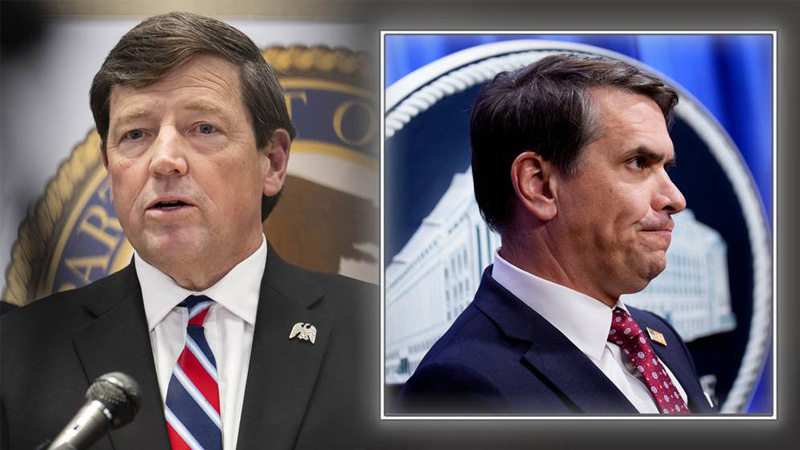
Austrian economic theory has always shown that violent intervention in the free market always produces outcomes which are judged unsatisfactory, even from the point of view of the initiators of these interventions.
While organized labor across Nigeria is currently jubilant over their recent win in obtaining a minimum wage increase by fiat, every student of praxeology in Nigeria receives this news with mixed feelings and the utmost reservation, because we are cognizant of the outcomes which inevitably follow from such interventions in the free market.
Earlier in May 2024, organized labor (in both public and private sector)—under the auspices of the Nigerian Labor Congress (NLC) and Trade Union Congress (TUC), after putting together some numbers they considered personal living expenses of the Nigerian worker—embarked on a series of nationwide strikes and public agitations in a bid to get a minimum wage increase from the previous N33,000 to N615,000. Mr. Joe Ajero, the President of the NLC, in his statement as quoted by the Premium Times, is seen making the threat that, “if, however, the negotiation of the minimum wage is not concluded by the end of May, the Trade Union movement in Nigeria will no longer guarantee industrial peace in the country.”
This, once more, provided evidence that use of threat and violence are inherent in labor unionism. Following these developments, a series of wage negotiations were initiated, with concessions made on both sides (i.e., the workers and the government). The Nigerian government finally acquiesced to the pressures exerted by the trades union, and organized labor was able to exit negotiations with an estimated 133% increase in minimum wage—to N70,000 per month.
That a higher wage is preferable to a lower wage is not disputed. What concerns the student of praxeology is the rigorous investigation of the means chosen to attain these higher wages. The praxeologist always asks whether the means adopted to attain desired ends—in this case, higher wages for Nigerian workers—bring about the attainment of those ends. At the same time, the student of praxeology also considers economics—the most elaborated subdivision of praxeology—a universally-valid science of human action, and therefore, the application of its theories not to be delimited by geography or historical context. As long as man must act to remove uneasiness, economic theory holds, always and everywhere, that there is human action, including Nigeria.
The purpose of this article is to show the predictions of Austrian economic theory concerning the necessary outcomes of minimum wage increases by violent intervention in general, as well its implications for the Nigerian workers.
An Austrian perspective on minimum wage increases by violent intervention
Austrian economic theory has always shown that violent intervention in the free market always produces outcomes which are judged unsatisfactory, even from the point of view of the initiators of these interventions. It asserts that intervention in the free market via minimum wage laws, or coercive actions of the trade union, would lead to the unemployment of a section of a country’s labor force who are willing to sell their labor (all other things being equal). Murray Rothbard in his classic Man, Economy, and State, writes,
Compulsory unemployment is achieved indirectly through minimum wage laws. On the free market, everyone’s wage tends to be set at his discounted marginal value productivity. A minimum wage law means that those whose DMVP is below the legal minimum are prevented from working. The worker was willing to take the job, and the employer to hire him. But the decree of the State prevents this hiring from taking place. (italics in original)
And Mises, in his book Interventionism, puts it that, “to deny that raising wages above the point prescribed by market conditions must necessarily lead to a reduction in the number of employed workers is tantamount to asserting that the size of the labor supply has no influence on wage rates.”
A historical investigation of the effects of minimum wage laws in any country inevitably reveals that minimum wage laws always result (all other things being equal) in unemployment of a section of the workers willing to sell their labor, thus further confirming the conclusions of economic theory on wage interventions.
That understood, we return to the objectives of the Nigerian government and the NLC in imposing a minimum wage increase by statutory law in order to see whether the chosen means—intervention—proves effective towards attaining that end. The objective of the Nigerian government and NLC is to increase the overall wage of the Nigerian worker, however, given their adoption of coercive intervention in attaining that end, the more unsatisfactory outcome of unemployment of a section of the country’s skilled labor force must follow. In addition to the unsatisfactory outcome of unemployment, the wages of unskilled labor will also decrease because of the entry of these unemployed masses of skilled workers into the unskilled labor market. From this, we can say that the current win by the NLC in obtaining a minimum wage increase by statutory law, rather than market methods, is only a pyrrhic victory.
How then could wages be increased for every Nigerian worker, without incurring some hidden, long-term consequences that would disrupt maximal satisfaction of most urgent wants of any group of Nigerian workers?
The solution is an increase in the per head accumulation of capital. Economics recognizes that increases in per head capital accumulation would lead to higher marginal productivity of labor. When labor has access to better tools and machines, its contribution to the marginal product increases. This is the only way to increase wages for every Nigerian worker without disrupting the free market and without making any section of the population worse off in the long run.
A return to the Misesian concept of “rightly understood” long-run interest, as expounded by Mises in his short book, The Clash of Group Interests, would work to the advantage of every Nigerian worker. The Nigerian worker ought to see that it is in his best long-run interest that mere short-run gains that compromise social cooperation are renounced. Mises succinctly summarizes this point,
The sacrifice that a man or a group makes in renouncing some short-run gains, lest they endanger the peaceful operation of the apparatus of social cooperation, is merely temporary. It amounts to an abandonment of a small immediate profit for the sake of incomparably greater advantages in the long run.




